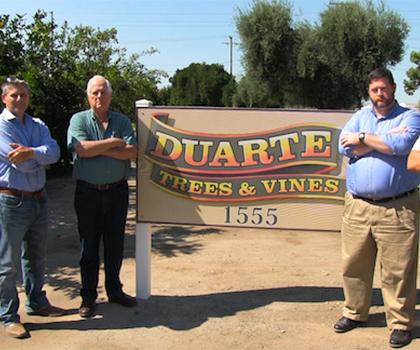California Cattlemen Challenge Illegal Listing of Grey Wolf
Ranchers Fighting to Protect Livestock
By: Jessica Theisman, Associate Editor
On January 31, the California Cattlemen’s Association (CCA) and the California Farm Bureau Federation filed a lawsuit challenging the California Fish and Game Commission’s June 2014 decision to list the grey wolf as an endangered species under the California Endangered Species Act. This decision went into effect on January 1, 2017, and has many farmers and ranchers upset.
“The organizations are represented by the Pacific Legal Foundation, a nationwide leader in litigation aimed at ensuring limited government, private property rights and sensible environmental protections. The suit alleges that endangered listing of the gray wolf under the California Endangered Species Act was improper for three reasons,” the CCA said in a news release.
This subspecies of grey wolf originally descended from Canada. It is not native to the state of California, as the law requires, and definitely not an asset for California’s agriculture industry. Secondly, there is an abundant and healthy population of this species throughout the western United States. The Commission focused too much on the California populations, the CCA alleges. Lastly, the commission impermissibly listed the grey wolf based on the occasional presence in California by a single wolf at that time.
“The Fish and Game Commission took a big bite out of its own credibility with this unjustified listing,” said Damien Schiff, PLF Principal Attorney, in the CCA’s release. “The agency managed to label the gray wolf as ‘endangered’ only by myopically and illegally ignoring its population outside California.”
Ranchers’ livestock fall prey to these predators, and this new policy will cause a huge impact on the rural economies that depend upon agriculture. CCA president and Butte County cattleman Dave Daley said in the news release that the lawsuit is necessary for ranchers to ensure the humane treatment of their livestock.
“Under California law, you can’t even pursue a species that is listed as endangered,” Daley said. “If a rancher sees a wolf attacking one of his or her calves, he or she can’t chase the wolf away without breaking the law. Ranchers are not seeking open season on wolves, we just want sensible wolf management that also allows us to protect our livestock. That will require delisting the gray wolf.”
The case is California Cattlemen’s Association, et. al. v. California Fish and Game Commission, filed in the Superior Court of California for the County of San Diego. Those interested in the case can visit www.pacificlegal.org for more information.
























 Participants can go to
Participants can go to  past, present, and future to see that they are not alone and recognize the Ag industry needs all of us for a sustainable future.
past, present, and future to see that they are not alone and recognize the Ag industry needs all of us for a sustainable future. The main summit events will take place at the Crest Theatre in Downtown Sacramento, 1013 K Street. The final day of the summit will include tours of Northern California’s Agriculture landscape and local agricultural operations.
The main summit events will take place at the Crest Theatre in Downtown Sacramento, 1013 K Street. The final day of the summit will include tours of Northern California’s Agriculture landscape and local agricultural operations.








